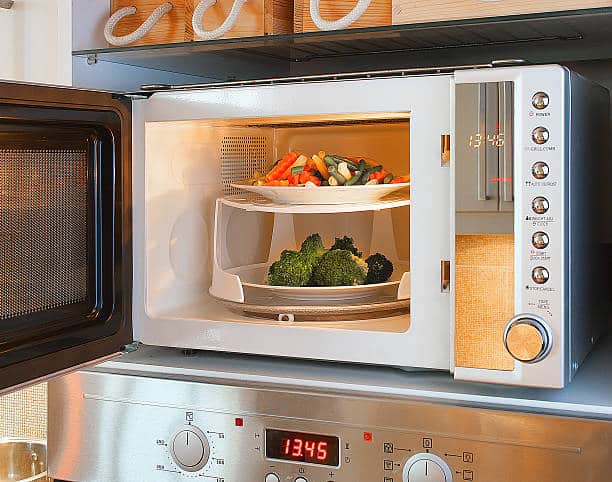If you’ve ever worried that microwaving vegetables might be zapping away their nutritional value, you’re not alone. This concern has been on the minds of health-conscious consumers for years. However, let’s set the record straight: Microwaving vegetables is not only convenient but also a nutrient-preserving method of cooking. Stick around to discover how microwaving impacts nutrient retention, what precautions you should take, and whether it’s truly a safer option compared to traditional cooking methods.
Table Of Contents
−- Do Microwaves Destroy Nutrients in Vegetables?
- The Science Behind Microwave Cooking
- Is Microwave Cooking Safe?
- Why Do People Think Microwaving Vegetables Is Risky?
- How Does Microwaving Compare to Boiling?
- Do Microwaves Really Kill Nutrients?
- Potential Risks of Microwaving Vegetables
- Practical Tips for Microwaving Vegetables
Do Microwaves Destroy Nutrients in Vegetables?
The straightforward answer is no, microwaving vegetables doesn’t annihilate their nutrients. However, it’s essential to note that the cooking process itself can influence nutrient retention, irrespective of the method used. When you cook vegetables in water, water-soluble nutrients like certain vitamins and minerals can leach out. Therefore, from a nutritional standpoint, steaming often fares better than boiling.

The Science Behind Microwave Cooking
Understanding the inner workings of a microwave can provide greater insight into how it affects food. Microwaves cook food using energy waves that are similar to radio waves but shorter. These waves target water molecules and other electrically polar molecules in food, causing them to vibrate and generate heat rapidly. This efficient heating process is not indiscriminate; it doesn’t randomly destroy nutrients.
Is Microwave Cooking Safe?
If you’re reading this, the likelihood is high that you own or have access to a microwave. While it’s true that exposing vegetables to heat can degrade some nutrients, microwaves offer a level of control over cooking time and temperature that can help minimize this loss. Plus, microwaving can even preserve some nutrients that would be lost in other cooking methods, such as boiling.
Why Do People Think Microwaving Vegetables Is Risky?
The myth persists that microwaving vegetables is unhealthy. This misconception often stems from the belief that the cooking process is unnatural or that it involves harmful radiation. However, the reality is that microwaves can actually preserve more nutrients than traditional cooking methods. The key is to avoid drowning the vegetables in water, as this can lead to nutrient leaching.
How Does Microwaving Compare to Boiling?
When it comes to nutrient preservation, microwaving outperforms boiling. Not only does it retain the natural flavors, but microwaving also minimizes the loss of heat-sensitive vitamins like vitamin C. You can utilize a special microwave steaming tray or simply use a microwave-safe bowl with a small amount of water to achieve this.
Do Microwaves Really Kill Nutrients?
Some studies suggest that microwaving can cause significant loss of certain nutrients. For instance, it’s said to eliminate up to 97% of flavonoids in broccoli. However, other research counters that proper microwaving can even increase the flavonoid content. The key variable here is the amount of water used for cooking; excessive water can lead to nutrient loss.
Potential Risks of Microwaving Vegetables
While microwaves offer convenience and nutrient preservation, they are not without some risks. Overuse or malfunctioning of the microwave can pose fire hazards. Additionally, cooking in certain types of plastic containers can lead to chemical leaching. It’s crucial to use microwave-safe cookware to mitigate these risks.
Practical Tips for Microwaving Vegetables
Do’s
- Use the minimum amount of water to preserve nutrients.
- Stir your dish frequently to ensure even cooking, especially for reheating.
- Cook until the vegetables are just tender to minimize nutrient loss.
Don’ts
- Avoid cutting and exposing vegetables to air for long periods, as this can lead to nutrient oxidation.
- Don’t boil vegetables in the microwave; it not only degrades nutrients but also renders them less effective for your body.
- Excessive cooking time at high temperatures will eliminate most of the nutrients.
Conclusion
When done right, microwaving can be one of the best cooking methods for preserving the nutrients in your vegetables. It offers speed, efficiency, and a higher retention of essential vitamins and minerals compared to other cooking methods like boiling. So, the next time you’re in a rush but still want a nutritious meal, don’t hesitate to pop your veggies in the microwave.

Editorial Staff
Our writers, editors, content managers, and SEO specialist. We all take part in crafting amazing articles. We spend hours ensuring that each article is based on facts, researched, and thorough. You'll never want to click the back button to look for more answers other than here!
